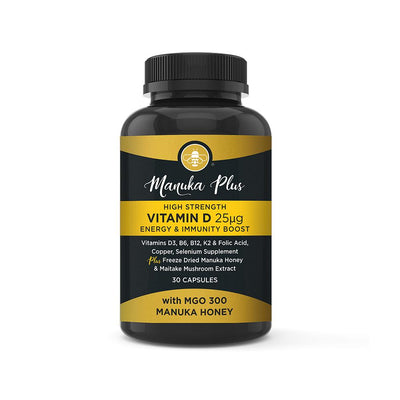New guidance from the National Institute for Health and Care Excellence (NICE), means up to 46,000 people could benefit by being diagnosed with a B12 deficiency.
It comes as new evidence reveals as many as one in 20 people over 60 and one in 10 over 75 could be lacking in the vitamin.
Vitamin B12 is mainly found in meat, fish, dairy products and eggs. For those eating plant-based diets, yeast extract and fortified cereals are the main sources. B12 works to keep the body’s blood and nerve cells healthy. The vitamin is used to produce healthy red blood cells, allowing oxygen to be provided to body tissue. A deficiency can have far-reaching consequences, causing a number of debilitating symptoms.

NICE has issued new draft guidance stating that doctors should be testing older people more frequently for a B12 deficiency. Suggesting that GPs should offer patients a blood test if they have one symptom and at least one risk factor.
Common symptoms of a B12 deficiency include feeling weak or tired, lack of immunity, confusion or “brain fog” and mental health issues such as depression, making it difficult to diagnose as it could be mistaken for something else.
Risk factors include:
- The patient's age - particularly if they are 65 or over
- A family history of B12 deficiency
- Eating a plant-based diet
So if you feel you are at risk, be sure to make an appointment with your GP today.
Older people are more at risk of becoming deficient because the body becomes less able to absorb B12 [1]. Vitamin B12 is essential for energy yielding metabolism and a reduction of tiredness and fatigue. It also contributes to the normal function of the nervous and immune system.
This is particularly true for women going through the peri menopause, those that are menopausal and post menopausal.
Those that follow a plant based diet should also be very mindful of their nutrient intake as Vitamin B12 is found primarily in animal foods, so are at a higher risk of deficiency of this important vitamin.

Vitamin B12 also plays a key role in immunity.[1] One study found that elderly subjects over the age of 70 who received over 4 months of a special nutritional formula including vitamin B12 had an increase immunity to fight off harmful bacteria.[2]
If you think you could be missing out of essential levels of B12 in your diet, you could also supplement your diet with a multi-vitamin.


